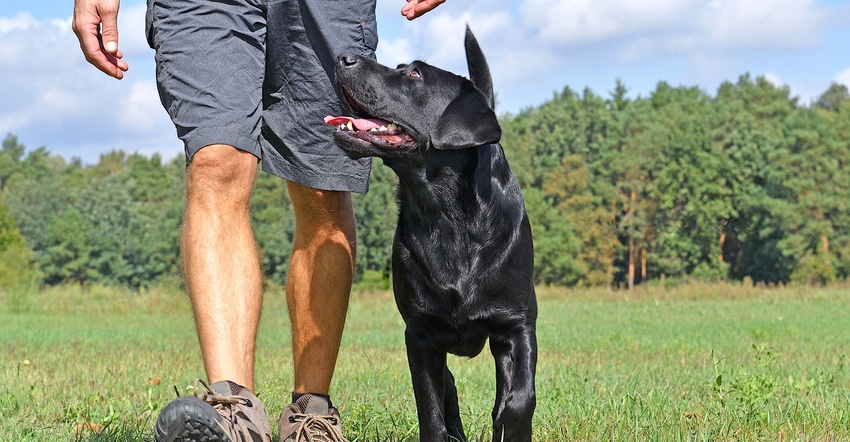The Nose Knows: Dogs Can Screen People for COVID-19 With 94 Percent Accuracy
Dogs could be helpful for quickly screening people for COVID-19, according to University of Pennsylvania research.

This #InternationalDogDay let's tip our hats to Poncho, Dixie, Miley, Blaze, Argo, and the other canines who learned to sniff out COVID-19 for a University of Pennsylvania study.
Seven Labrador Retrievers and a Malinois trained on sterilizes samples from COVID patients to distinguish the smell of the virus’s unique odor signature. The report describes dogs as “a biological sensor of volatile organic compounds.” This is certainly true when it comes to locating the food wrapper in your trash can.

“Discrimination of SARS-CoV-2 infected patient samples by detection dogs: A proof of concept study,” by Essler et al, was published earlier this year in the PLOS ONE journal. The dog’s COVID samples were sterilized either with heat or with bleach and installed in a scent wheel for the dogs to pick out among control samples.
The 12-arm scent wheel holds a stainless steel port on each end containing the target scent. These ports are removable for cleaning between tests. Each wheel contains not only positive and negative samples, but also distractors such as gloves, or things like garlic, Sharpie marker, or marinade on filter paper.
The dogs were trained to stare at positive samples for three seconds and were rewarded for success with a treat.
“Dogs successfully discriminated between infected and uninfected urine samples, regardless of the inactivation protocol, as well as heat-treated saliva samples.,” the study found. “A unique odor associated with SARS-CoV-2 infection present in human urine as well as saliva, provides impetus for the development of odor-based screening, either by electronic, chemical, or biological sensing methods.”
The result was that the dogs showed a 94 percent accuracy rate. That was the good news. The tougher part is the logistical challenge of training enough dogs to be useful. “The use of dogs for screening in an operational setting will require training with a large number of novel SARS-CoV-2 positive and confirmed negative samples,” researchers concluded.
But, as #InternationalDogDay shows, people like working with dogs, so maybe it won’t be too big a chore to train enough of them to be helpful for quickly screening people in public places like airports and theaters.
About the Author(s)
You May Also Like





